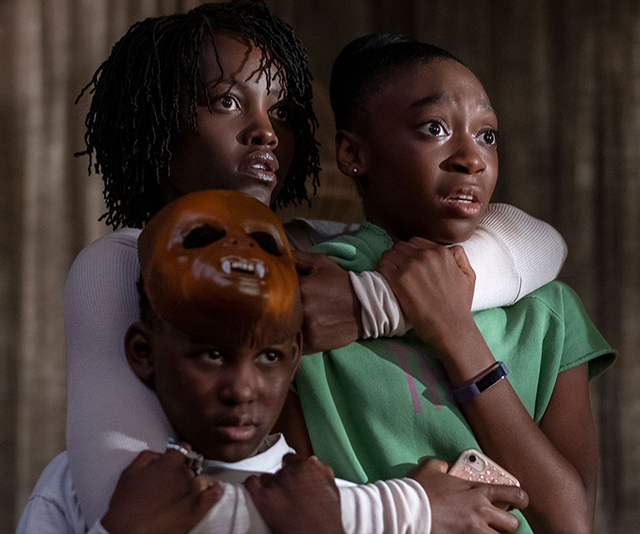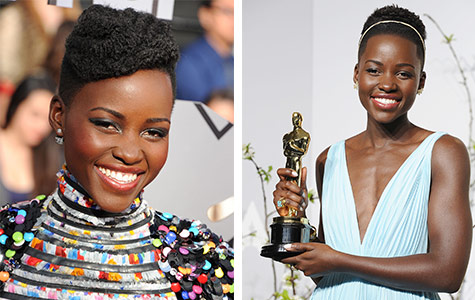If you’re reading this, you’ve probably just stumbled fresh out of a screening of Jordan Peele’s gripping new horror film Us, with all kinds of questions, theories, and interpretations hopping through the tunnels of your mind like uncaged rabbits.
Need to know more? You’re in luck, because Empire UK caught up with the filmmaker for a spoiler-heavy interview, talking those major twists, easter eggs and unexpected developments.
Listen to it in full on the Us Spoiler Special Podcast here, and read on for 15 spoiler-filled facts and tidbits from the man himself.
WARNING: CONTAINS MAJOR SPOILERS FOR US
1) Jordan Peele finds rabbits frightening
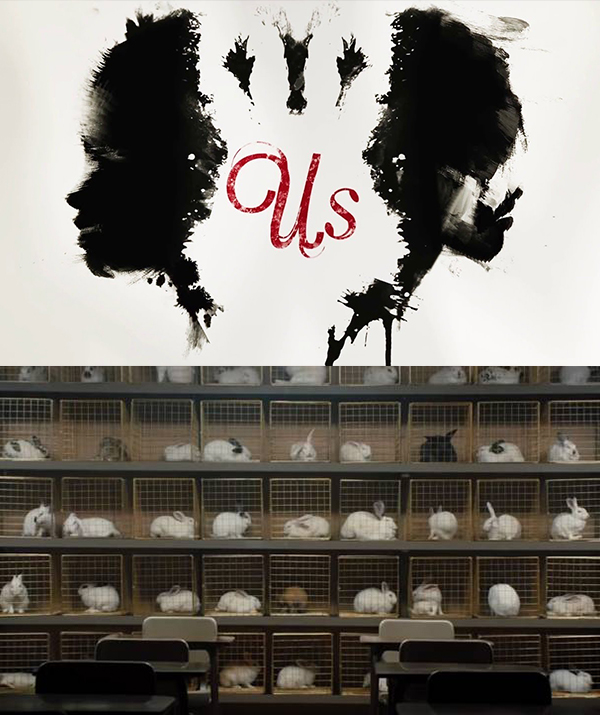
Rabbit symbolism is rampant in the film. You can even see the outline of one in the Us title at the end of the official trailer. (Universal Pictures)
There are twitchy-nosed little blighters littered throughout the film due to Peele’s own suspicions of bunnies – and he points to Night Of The Lipids and nightmarish animation Watership Down as other fearsome rabbits in film.
“Rabbits are cute and lovable and fluffy, and yet if you really get up close and look at their eyes, it’s like Jaws,” he says.
“If you’d put a rabbit brain in a human body, you would have Michael Myers. They do not have any sympathy, empathy, they would rip your head off if they could. They scare me.”
2) It’s a “dark Easter” movie
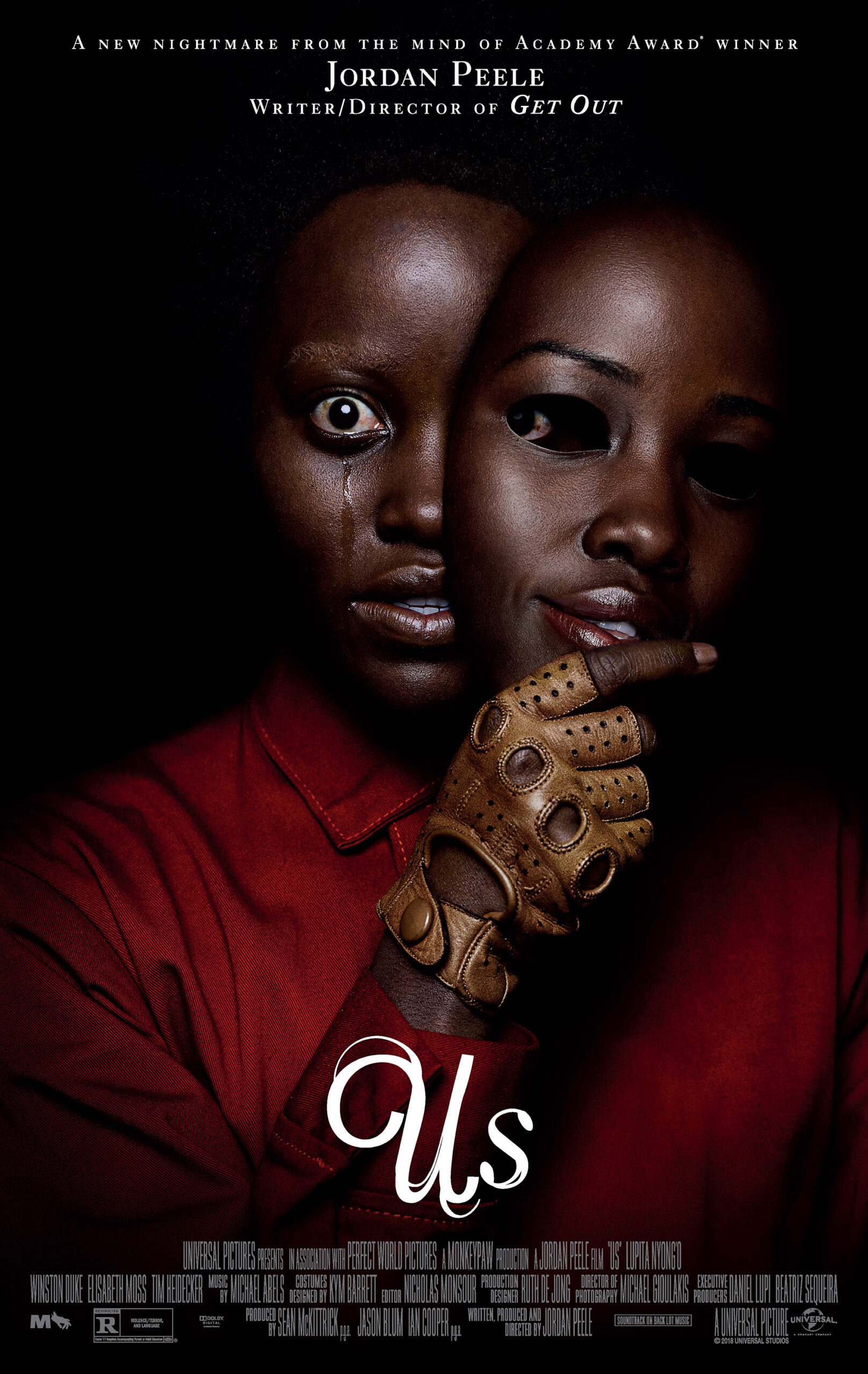
Universal Pictures
Christmas horror films are a thing, and Halloween is a prime scary movie target – but Easter never really gets its chance to be spooky. Until now, that is – Us is perhaps the first Easter horror, with its fluffy cottontails and those bright, sunny beach scenes.
“[Easter is] a holiday of much duality in itself,” Peele reasons of its thematic relevance.
“It’s the rising from this grave, and this movie is sort of this dark Easter. It is a rising of a messiah after a metaphorical death of sorts. A declaration to the world, as well.”
3) There are rabbits and 11:11 nods everywhere

Universal Pictures
Us is chock full of foreshadowing and recurring imagery.
Keep your eyes peeled for all kinds of rabbit and 11:11 references on a rewatch – and here are a few to get you started. “Zora’s shirt has a rabbit on it. There’s rabbits in the set design,” Peele hints.
“The Black Flag t-shirt makes an appearance in this movie, that has this sort of IIII on it. This is [what happens] when you get a real nerd allowed to make a movie.”
4) Adelaide’s coincidence-anxiety means Red is near
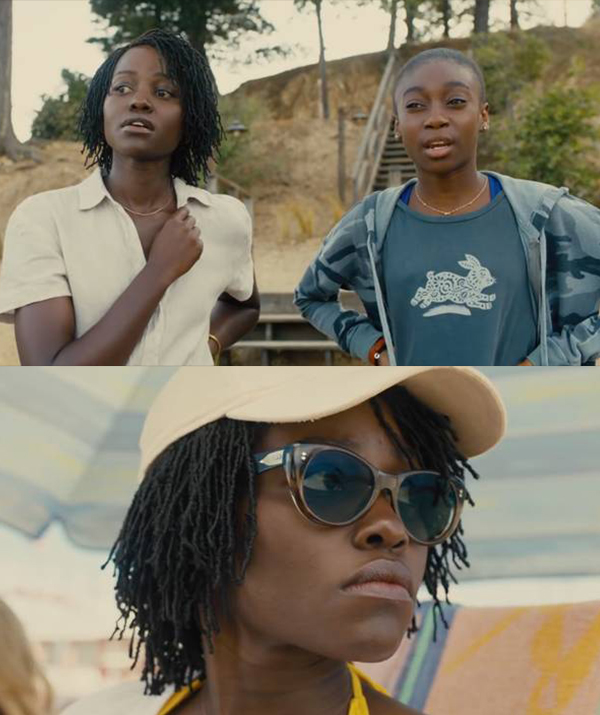
Universal Pictures
Peele builds a palpable sense of unease before the Untethering begins, particularly when a bunch of uncanny coincidences start piling up.
For the filmmaker, that’s all a sign that Red is physically near Adelaide.
“Coincidence marks a certain proximity to your other in this movie,” he explains.
5) Red has been biding her time for Adelaide’s return
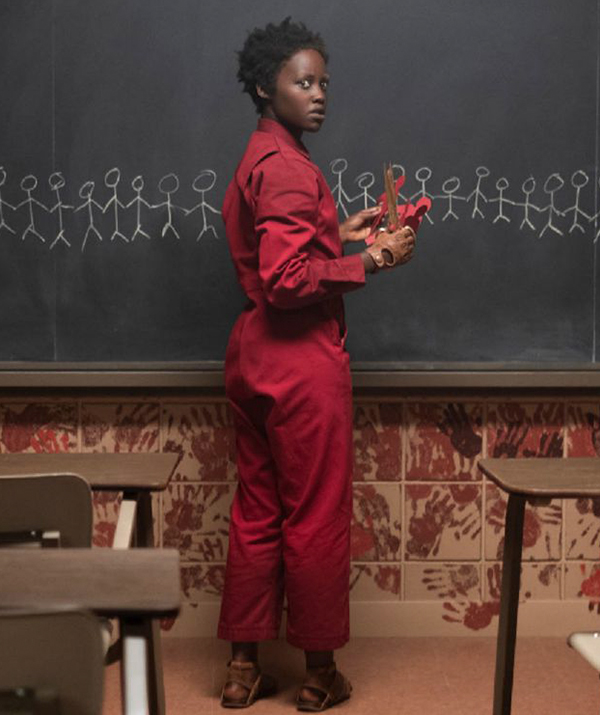
Universal Pictures
This is strongly suggested in the film, but Peele digs further into the timing of The Untethering – it’s certainly not a matter of chance that the Tethered uprising kicks off at the same time as Adelaide returns to the beach of her nightmares.
“It’s a plan that’s been in place for a long time, and a plan that was in place to ultimately coincide in one of this family’s trips back to the area of her initial trauma,” Peele confirms.
6) The subterranean level is called the Underpass
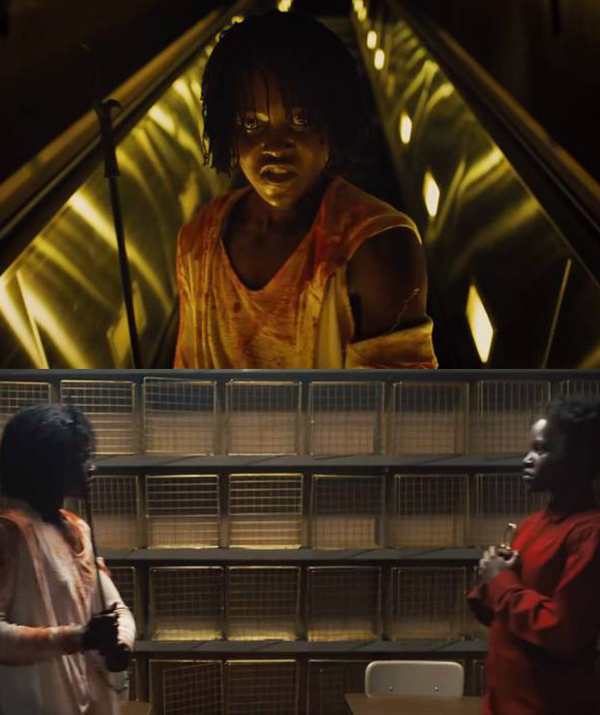
Universal Pictures
It’s established that the Tethered have been living in the vast connection of tunnels beneath American soil – and while it’s not explicitly named in the film, Peele calls it ‘The Underpass’. Spooky!
7) The Jeremiah 11:11 passage refers to Red’s messianic role
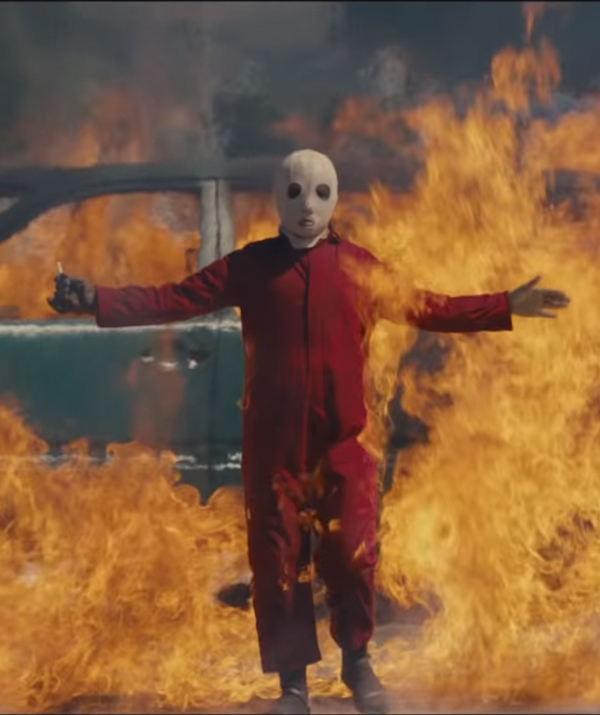
Universal Pictures
Of course, there’s pleasing thematic symmetry in the presence of ’11:11′, but there’s extra relevance to the Jeremiah passage – here’s one of the Biblical translations: “Therefore thus said the Lord, ‘Behold, I will bring evil upon them, which they shall not be able to escape; and though they shall cry unto me, I will not hearken unto them.'”
Intense, right? The passage relates to Red’s role as the leader of the rebelling Tethered.
“She’s had a vision, she’s had a connection to what she calls god,” he says.
“I think one of the breakthroughs in the writing process was realising that the dynamic of the Tethered was cult. That they have a complete faith in their messiah, that is Red. And to ultimately imply that them being the dark sides of us, we are in a cult as well. Just a less scary one on the surface.”
8) The genre switch-up let Peele cut loose

Universal Pictures
When the Untethering begins and the Wilsons’ doppelgangers appear, you might have expected a claustrophobic final hour in the confines of their holiday house – but Us does the opposite, expanding to reveal a national scale to the chaos.
“The shift in genre from home invasion to zombie invasion is kind of satisfying,” Peele says.
“Let’s be honest, the wide-scale version is more fun than the home invasion. I think there’s a little bit of a relief that we’re all in this together in a weird way, and that this is going to become a more heightened story.”
9) The ‘We’re Americans’ line is there to both explain and stoke more curiosity
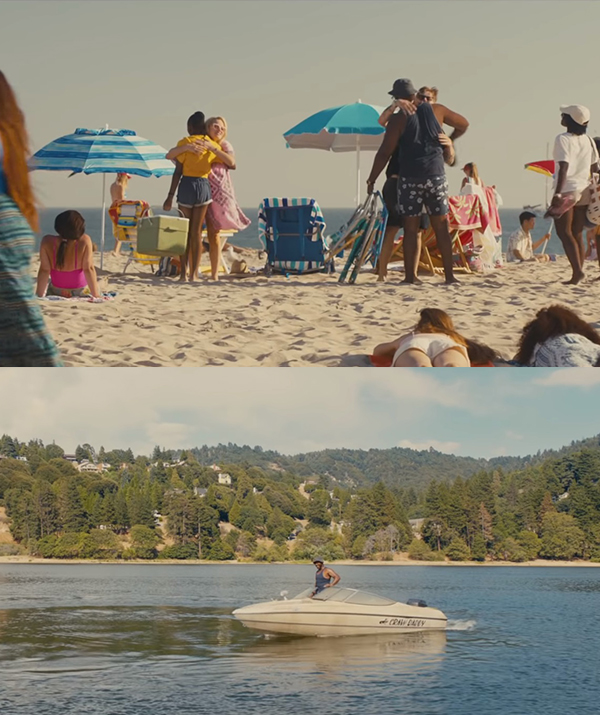
Universal Pictures
Here’s a line that’s going to be debated for years to come – when Gabe asks the Tethered intruders who they are, Red responds with two fascinating words: “We’re Americans.”
For Peele, it’s a response that raises plenty more things to ponder.
“It’s so satisfying to me in a horror movie when a question is answered, but it only remains scary if the answer raises new questions,” he says.
The line also reiterates the reality of the doppelgangers.
“I wanted to have a moment where she declares pretty early on without saying these words, ‘Look, we’re from here. We’re human beings that are from this soil’,” Peele explains.
“Which of course you go on to find out, oh yes they are. […] I think Us can apply to anybody, human beings in general, your family, your country. And so for me, it was my country and the duality of our society.”
10) The Tethered are a man-made phenomenon
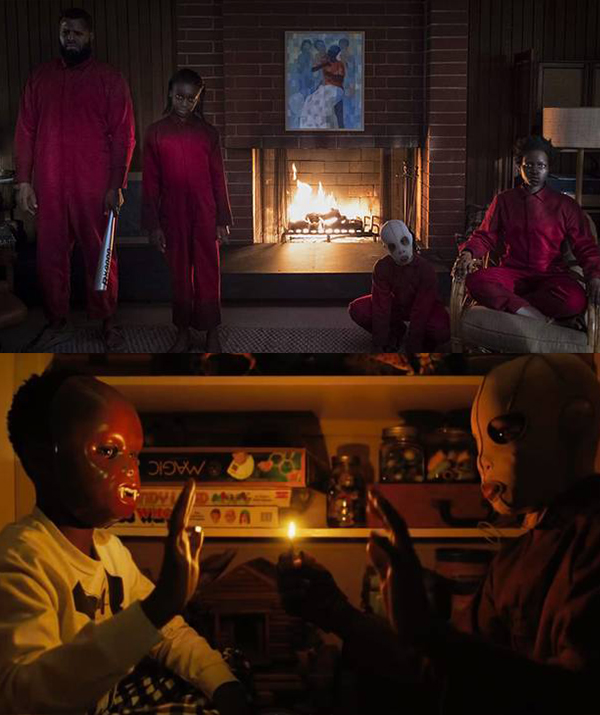
Universal Pictures
Again, this is explained in the film, but Peele elaborated more on the importance that the doppelganger phenomenon was created by people.
“I wanted to at least inform us in some way that humanity is behind this abomination,” he says.
“It’s part of my ongoing thesis that we are the monsters that we’re trying to portray in these monster movies.
It’s us, and the point of horror to me is that we can’t go unchecked.
When we don’t face our fears, or when we suppress our guilt, I think we end up committing atrocities together.
Part of this movie is addressing the conspiracy theories of government mind control and fluoride in the water, and I thought, if there was a group of humans that was powerful enough to create this labyrinth, would they not be the same people to try to use the tether to control?”
11) Peele has sequel ideas – but he’s not jumping into one
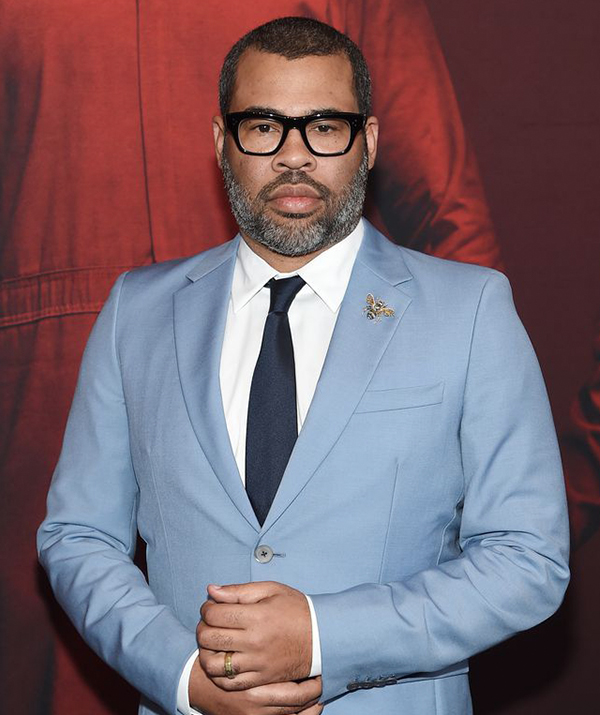
(Image: Getty)
So far, Peele is two-for-two on original movies – and while he has thoughts for where Us could go next (“There’s a lot of different ways to approach continuing in this universe that are at the very least fun in my mind and computer,” he says), the filmmaker says he’s still “got a bunch of stories to tell”.
So don’t count on Us 2: Seeing Double anytime soon, ok?
12) The ‘I Got 5 On It’ ballet originally had traditional classical music

Universal Pictures
Us‘s subterranean finale moves almost towards dance-horror territory, with Adelaide and Red caught in a choreographed tussle backed by an arresting orchestral arrangement of Luniz’s ‘I Got 5 On It’.
But originally their grapple played out to a more traditional flavour of banger – Tchaikovsky’s ‘Pas De Deux’ from The Nutcracker.
“We put that in the first cut, and it wasn’t working,” Peele admits.
“To me, as a viewer, it felt sort of old-school, a little bit pretentious even. Like I listen to Tchaikovsky on a regular basis and I’m like, ‘Oh yeah, let’s try this piece of music.'”
13) The Red / Adelaide twist is there to make you question good and evil
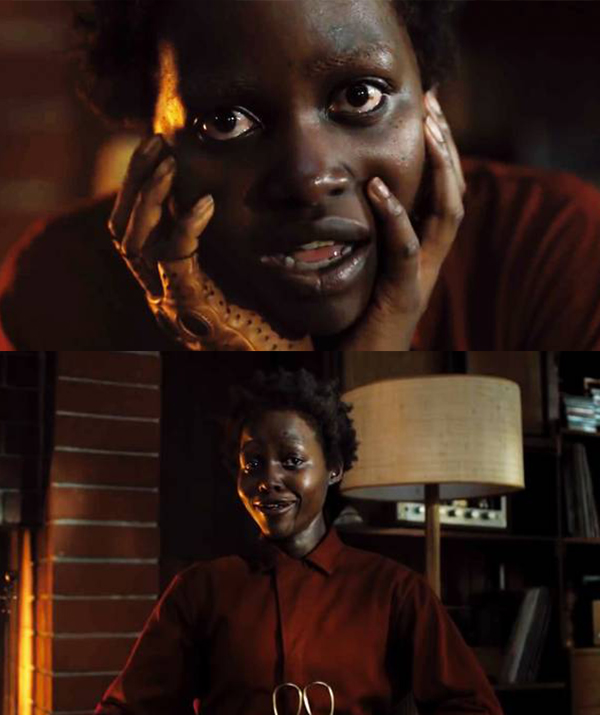
Universal Pictures
The final twist in Us – that Red and Adelaide switched places as children and have effectively been living each other’s lives – forces a reassessment of everything you’ve seen so far, inspiring new sympathy for ‘Red’, and bringing an uncomfortable new dimension of humanity to the Tethered.
It’s a reframing that brings the whole notion of villainy into question.
“The protagonist in the movie is the surrogate for the audience. I wasn’t doing my core theme any justice if I wasn’t revealing that ‘we’ have been the bad guy in this movie, we’ve been following the villain,” Peele elaborates.
“I say villain lightly because I think there are many experiences of the film, and I think a lot of people go through a question of ‘what is good and evil?’ Does that even exist? Both characters are loveable and terrifying based on the lives they’ve led. They’ve inverted their paths.”
14) It feeds into the nature-nurture debate
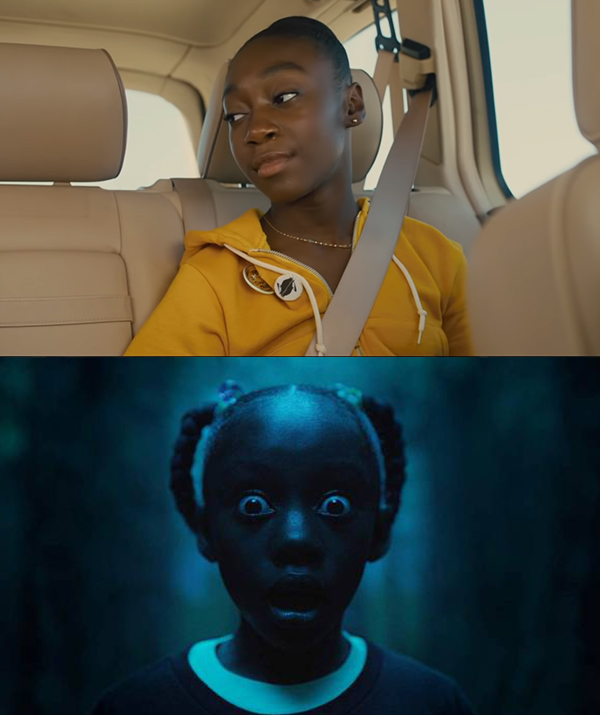
Universal Pictures
The duality of the Tethered and their above-ground counterparts can be read in all kinds of ways – but one of the clearest interpretations is as a socioeconomic metaphor.
The Tethered are a literal underclass, without the tools to succeed in the way that their above-ground counterparts can.
“One of the questions raised is privilege,” argues Peele.
“The neglect that presumption of deserved privilege requires. And when people are on the other side of it, when people have received the rough end of the nurture argument and they rebel or act in violence, or commit crimes on that side, is that evil? Or is that circumstance?”
15) Peele didn’t want any of the Wilsons to die
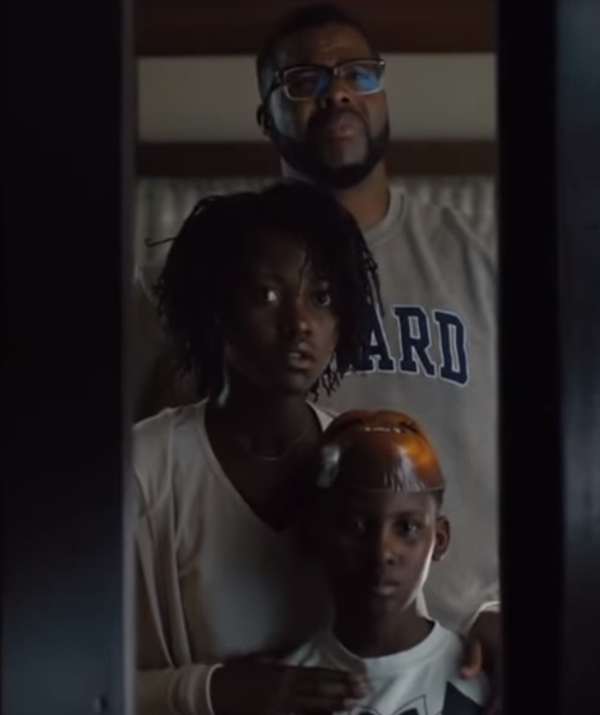
Universal Pictures
While the Wilson family goes through all kinds of traumatic life-or-death situations during the Untethering, they’re all still alive by the final credits. It’s not exactly a happy ending, but Peele was reluctant to stick the knife in and bump off any core characters.
“I’ve learned my lesson after the initial screenings of Get Out way back when, when Chris went to jail, that the audience doesn’t need it to be a squeaky clean happy ending, but part of respecting them is knowing certain boundaries of where you’ll lose them,” he explains.
“That’s a family we need to survive.”
Us is in cinemas now.
Ben Travis, Chris Hewitt
Watch Lupita N’yongo and Winston Duke discuss their latest roles:
